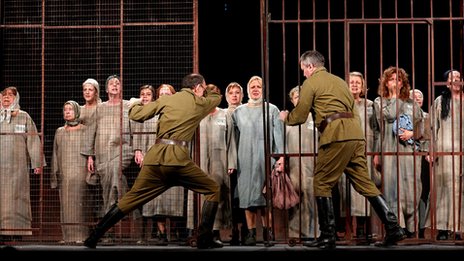…The anecdote of Yevno Azef is more than a picturesque footnote to the general history of modern terrorism. It illustrates the almost universal vulnerability of terrorist organizations to infiltration by the police or the secret service, and the lengths to which the latter will sometimes go to preserve the cover of a double agent.
When the agent provocateur in a terrorist group is employed by an internal security service, he is generally told to avoid actually provoking violence, or even participating directly in any criminal act; but such instructions are nearly always platonic. And in some instances, literal provocation is, in fact, the police aim. Though documentary proof is incomplete, several French historians are convinced that the Paris police, operating through an undercover agent, supplied the anarchist Auguste Vaillant with the bomb that he threw in the Chamber of Deputies.

—Into the Whirlwind was premiered in 1989 when communist power was already ebbing away
…
The interrogators had a glassy expression, like the eyes of dead fish.
A rare spot of sunlight landing in a prison cell was like a golden beetle falling on to a dungheap.
If there was any poetry in the vast slave labour system – the Gulag – built by Soviet supreme leader Joseph Stalin, then Yevgenia Ginzburg certainly discovered it.
For the first time her horrific experiences – 18 years of prison, labour camps and exile – have been re-enacted in London by Sovremennik, one of Russia’s top theatre companies.
.—click image for source…
When a terrorist organization is manipulated through double agents working for a foreign, rather than a domestic, secret service, the acts of terror thus provoked are likely to be both spectacular and explosive. Such manipulation, no doubt aimed at sabotaging any negotiations between Israel and the Arab neighbors, may have accounted for the Khartoum outrage in which the U.S. ambassador and the Belgian charge d’affaires were murdered. And the wildest, most extreme acts of terrorism may develop when a double agent, with a mind of his own, like Yevno Azef, tries to play one of his masters against the other.
Azev is important for another reason, underlined by the Soviet historian Roy Medvedev in his study of Stalinist tyranny. The double agent of the Azev type is the psychological as well as symbolic link between the revolutionary and the police or totalitarian forms of terrorism. Medvedev rejects the charge that Stalin was himself a double agent employed by the Okhrana at the time he was holding up banks and participating in other terrorist acts ordered by Lenin’s secret Bolshevik troika.
But Medvedev brought out similarities of character between Azev and Stalin, each distinguished by an immeasurable and uninhibited lust for power. Though Stalin’s real name probably never figured on any police roster of double agents, he played a double agent’s role, concealing his real goals from his comrades, while he was ruthlessly manipulating them to further his own ends. ( to be continued)…





 COMMENTS
COMMENTS